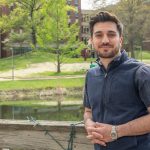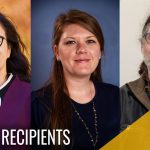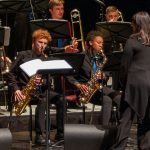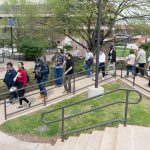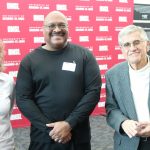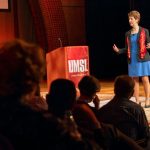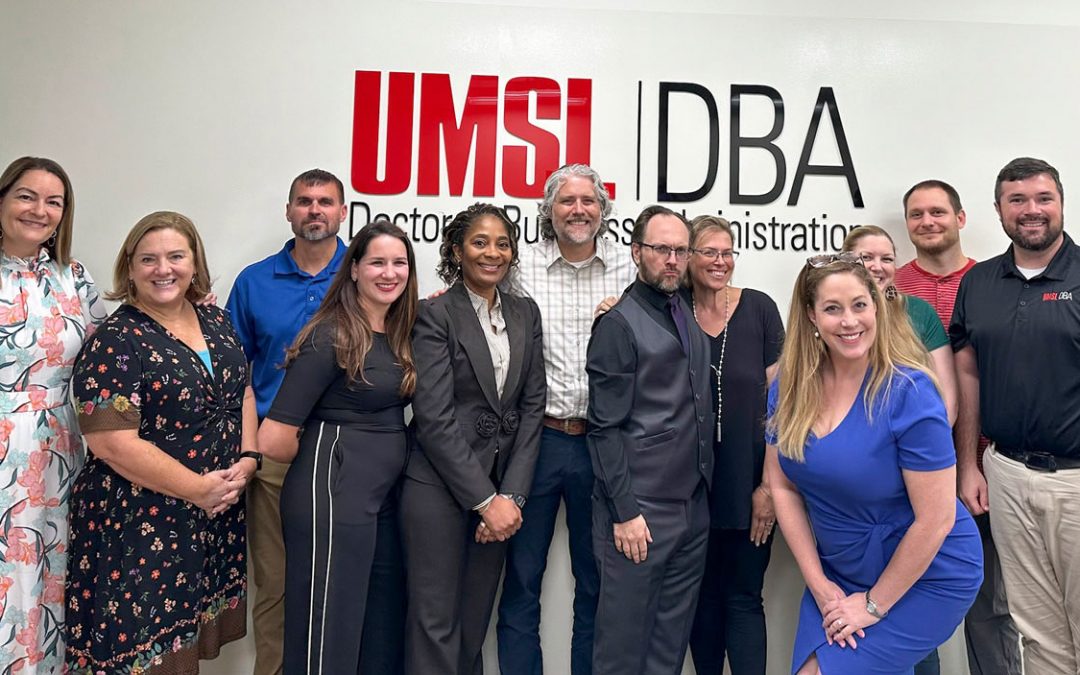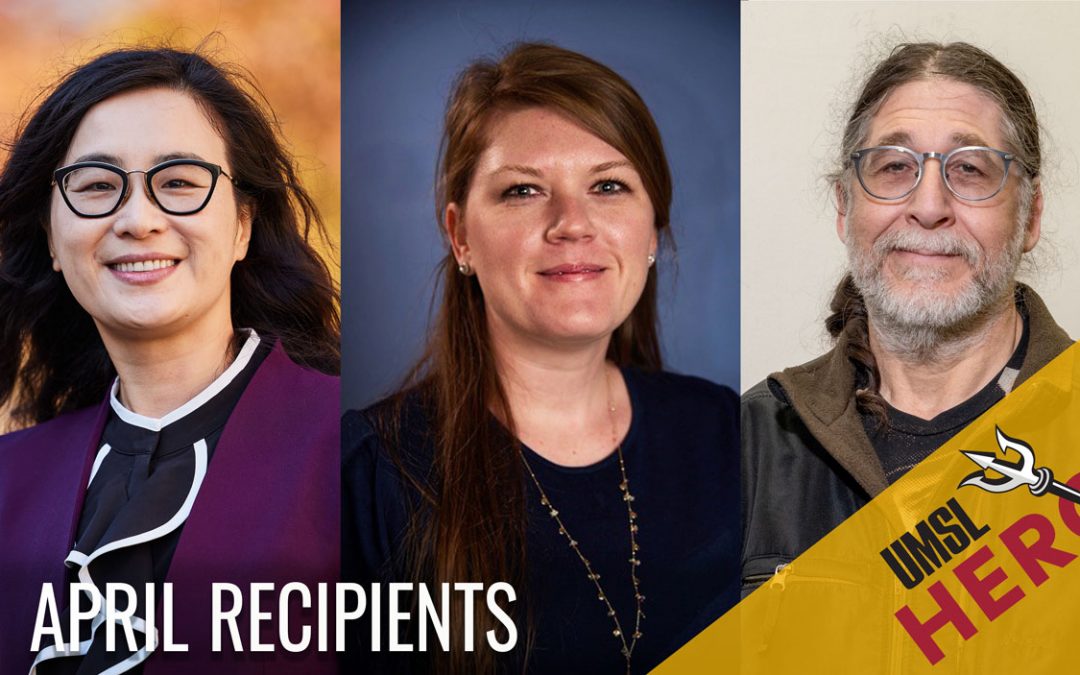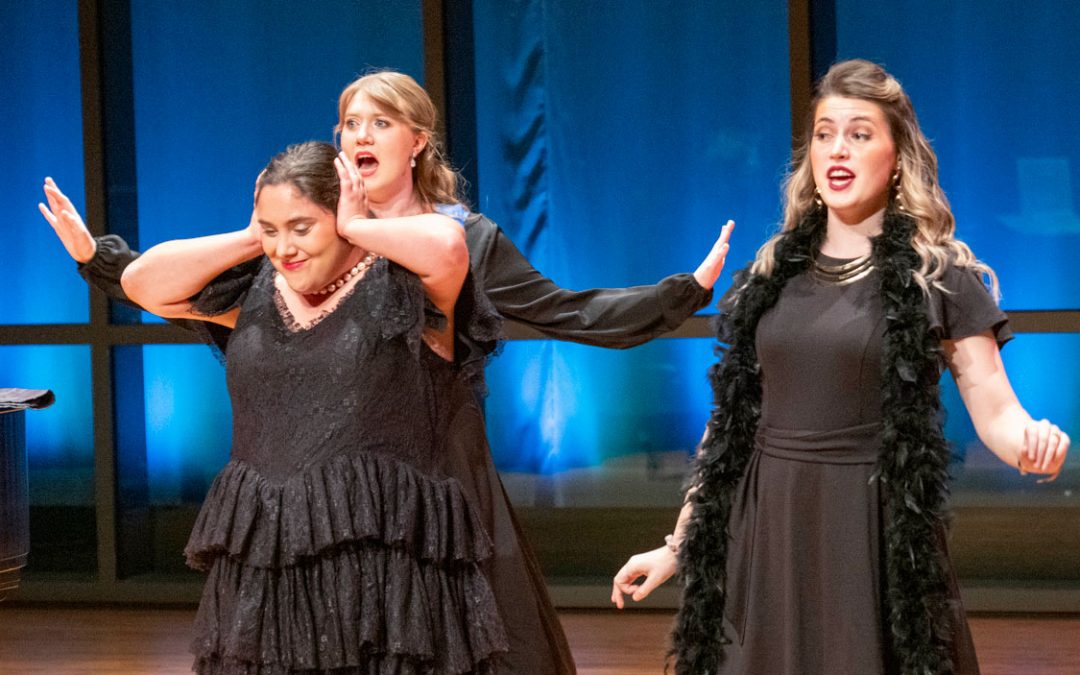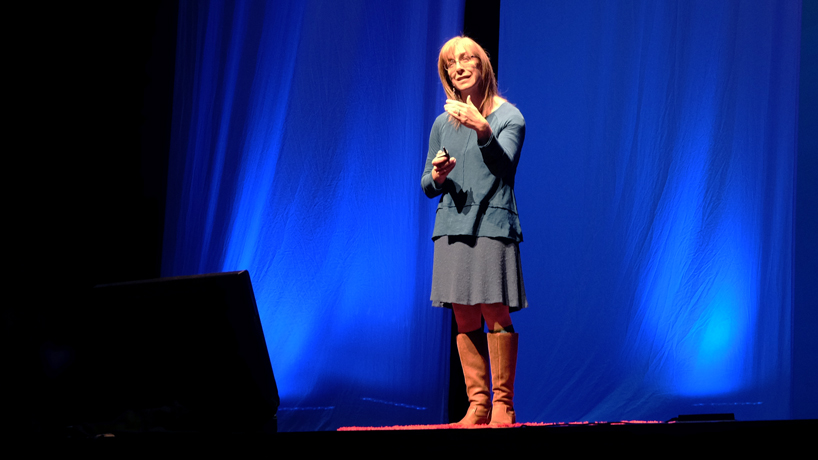
During her 2017 TEDxGatewayArch Talk, Theresa Coble, the E. Desmond Lee Endowed Professor of Experiential and Family Education at UMSL, speaks on how her experience grieving a daughter and seeking healing can apply on a larger, national scale in grieving difficult histories and healing as a nation. (Photo by Marisol Ramirez)
Theresa Coble has a passion for places of difficult history.
It largely comes from having a difficult history of her own. As the E. Desmond Lee Endowed Professor of Experiential and Family Education at the University of Missouri–St. Louis, Coble teaches her students how that past has shaped her approach to grief and transformed into leadership.
Her ideas earned her a spot as a featured speaker in this year’s TEDxGatewayArch speakers event. The fifth annual event builds locally off the national TED Talks tradition of highlighting ideas worth spreading. This year’s local theme was “Ripple Effect.” It attracted hundreds to the Blanche M. Touhill Performing Arts Center on campus Friday night, where Coble took her story and her lessons learned to the stage.
In 2011, Coble and her husband Dean lost their daughter Ila in a tragic shooting accident on their family farm. Coble had instructed her daughter to play outside not knowing her husband had just sent 4-year-old Ila inside to keep her from playing at the shooting range.
Ila hid behind the target.
“It was 100 percent preventable, but we don’t get a do-over,” Coble said during her talk.
What Coble came to understand was grief. She and her husband, who are still together, worked through acknowledging their roles, the miscommunication, the emptiness and the family they needed to continue to be with their son. To this day, they continue to be open to the grief surrounding Ila’s death.
Coble realized that grief is something that transcends her individual experience and with which she thinks many people need help.
“Frankly, we suck at grief,” she said. “If we don’t grieve, we don’t heal.”
And there are plenty of things to grieve, from war to failed political decisions to personal tragedies, which means there are plenty of people and situations that need healing.
To aid in that process, Coble shared her truth-telling framework to deal with grief. It encompasses four truths: evidence-based truth, personal truth, societal truth and reconciliatory truth.
She used the Vietnam Veterans Memorial in Washington to unpack the framework and how the memorial succeeds at helping the country heal.
First, it tells evidence-based truth by listing all the names of those Americans who died fighting in the war. It provides a place to share personal truth as people tell family stories of those times and the people they knew who lost their lives. Then it shows societal truth as a mass symbol of the enormity of the loss for all to see and experience. And lastly, it reconciles the 3 to 4 million people who lost their lives while also honoring the experience of the millions of Vietnam refugees who were ignored and lived in silence in the U.S. during those contentious times. Their conflicting experiences are drawn together by the memorial, offering a place of reconciliation, acknowledgement and therefore healing.
Coble called for this type of truth telling to be more widespread from the personal to the national level. She asked the audience to imagine a world that acknowledges its difficult past.
“Look through the lens of an expanded worldview and embrace larger truth,” she said. “We must follow the journey all the way through and stay open to grief. Engage difficult history.”
Coble challenged the audience to make an effort to visit the places of deep hurt, places like the Brown v. Board of Education National Historic Site, the Trail of Tears and the 9/11 Memorial in New York.
“Think about the loss of life and imagine being in other shoes,” she said, closing out her remarks. “Make connections between then and now. Overlay the truth-telling framework on your grief. Only if we own difficult history can we heal and reconcile the difficult history of American life.”
The third of 17 speakers, Coble was followed by two other UMSL-affiliated performances later in the evening: MADCO, the professional dance company in residence at UMSL, and Antionette Carroll, a UMSL alumna and president and CEO of Creative Reaction Lab.
For more information on TEDxGatewayArch visit tedxgatewayarch.org.
To watch Coble’s talk click here or view the video below.



